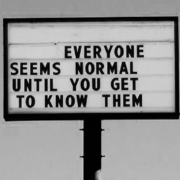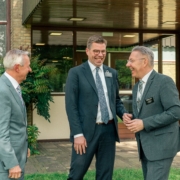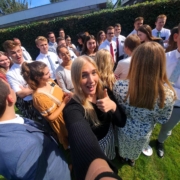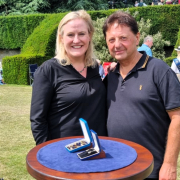A 400-year leap
One of my favourite ways to start a learning session is with an icebreaker I call “A conversation with a Time Traveller.”
Two people pair up: one plays someone from the early 1600s, the other plays a modern-day person, it’s like having a conversation with one of your ancestors.
The 2025 partner’s job is to choose something the 1600s person wouldn’t recognise.
Something like a smartphone, Netflix, or a drive-thru, and then try to explain it in a way they can grasp.
The fun comes from realising how hard it is to describe something so normal to us, yet so weird to them.
It’s a reminder that things and our understanding of them, can change dramatically over time.
The same is true with the gospel of Jesus Christ.
The scriptures often speak to people in the language and symbols of their day.
For instance, a shepherd, a fisherman, a farmer in ancient times would hear parables, yet only to those spiritually ready, were revealed the mysteries of the kingdom of heaven.
Concerning the parables of Jesus, Howard W. Hunter said: “They are so simple a child can understand, yet profound enough for the sage and philosopher.”
Our Understanding Today
That was true for someone living in the 1600s, and in our digital world of today.
Those same teachings sometimes require a new frame of reference for us to truly understand.
Jesus promised that the Spirit would “guide you into all truth” (John 16:13).
I know that God meets us where we are and teaches us in ways we can truly understand.
In our time in Belgium and the Netherlands, I saw many young missionaries learn to speak to people from different cultures and in many different languages, as they slowed down to understand.
In the same way, we can learn to share the gospel in ways that make sense to others, no matter how different their “world” may be from ours.
It starts by listening first, seeing through their eyes, hearing with their ears, and understanding their questions, as if we were in their shoes, before we even speak.
Just like in the icebreaker, it takes patience, creativity, and a willingness to see through someone else’s perspective.
The gospel never changes, but the way we understand and share it must speak the language of the listener – whether they come from the 1600s, the 21st century, or anywhere in between.
How might you prepare today to better connect with the “time travellers” you meet tomorrow?










